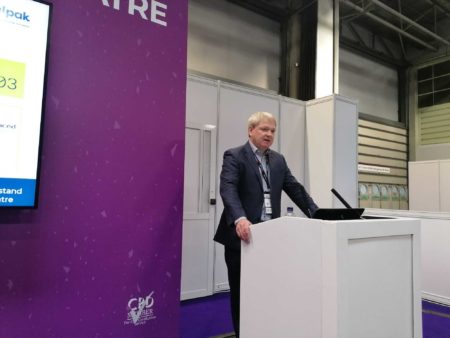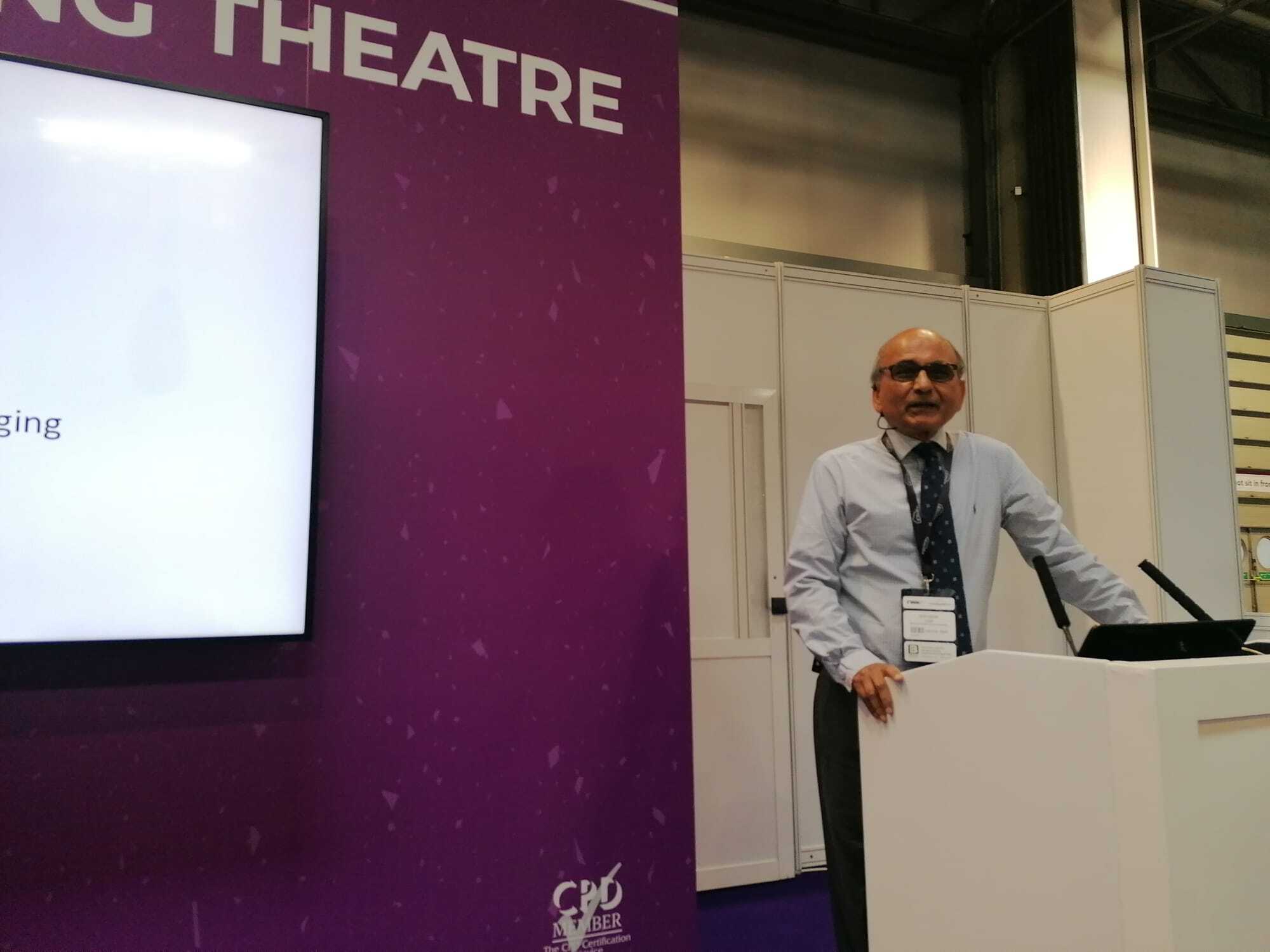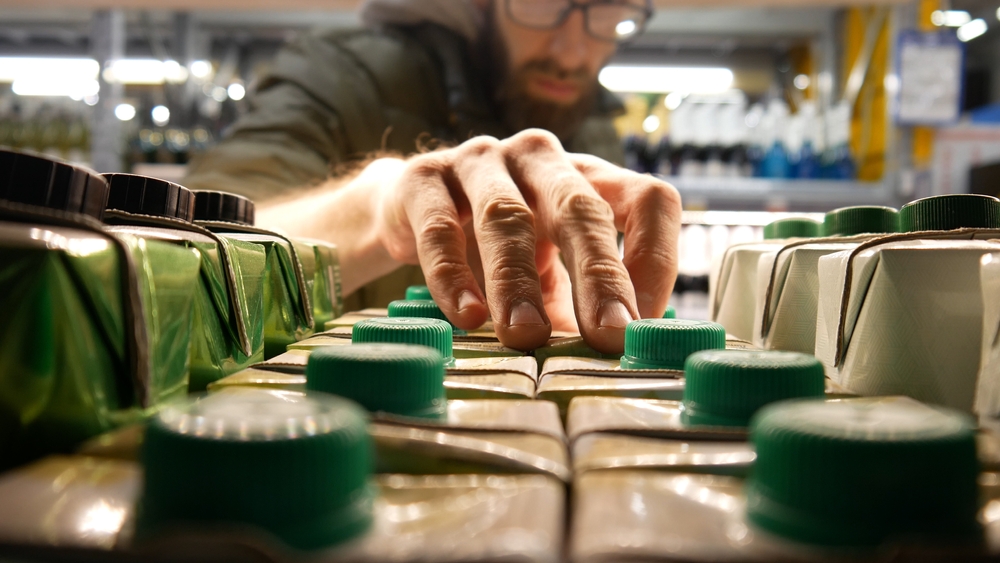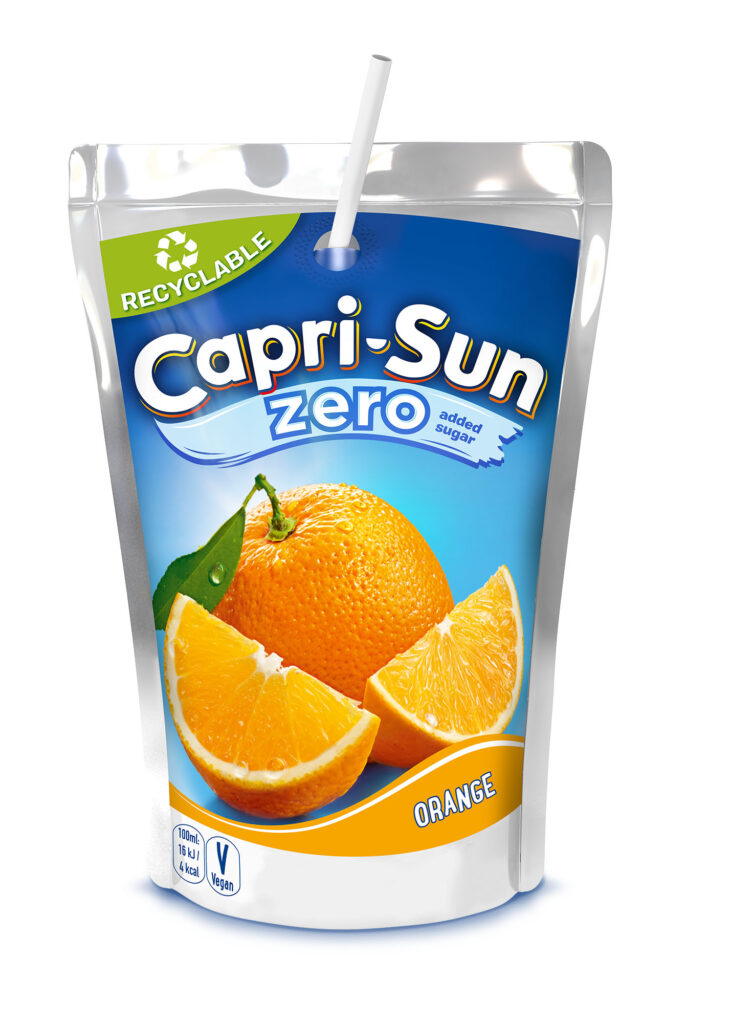Speaking at the opening session of the packaging theatre at RWM & Letsrecycle Live yesterday (14 September), Steve Gough was giving an overview of the challenges the sector is facing.
He explained that PRN prices are currently operating at a “very high level”, which is putting pressure on producers, on top of energy costs and other difficulties, and a compliance fee would help during difficult times.
Mr Gough said: “During my time on the ACP [2005-2015], market conditions would throw up and people would come and make market representations to us about improving the system.
“For me, over all of those and years, and even now, I wish the government would put a compliance fee in place, like we have for the WEEE scheme.
“We have a balanced market in general, where obligations and supply of evidence match, but then world events happen, and at times you need something to take the heat out of the PRN market. That would be my one wish for an improvement. As part of the legislation review, I would ask them to consider putting that in.”
The issue of a compliance fee has been a long-standing debate in the sector, with some agreeing it will help when prices are high, while others think it discourages recycling.
Market
Mr Gough also outlined the difficulties currently faced in the market.

He said 19 paper mills across Europe have taken extended downtime as a result of energy costs, and demand is also falling as households tighten their budgets.
He added that finding an end market for material is becoming more difficult as export rules tighten. While supportive of measures to tighten regulations, he explained that this adds to another difficulty to the market at the moment.
On a more positive note, he said more plastic recycling this year has taken place domestically in the UK rather than exported for the first time. For Valpak, he said 70% is recycled in the UK, and are looking at ways to make the domestic recycling of plastic easier.
Opportunities
Following on from Mr Gough was Deep Sagar, chair of the ACP.

He outlined a summary of recent legislation developments in the sector, and opportunities arising from them.
Mr Sagar was keen to stress that there is still time to influence the shaping of the legislation.
“Almost everything in terms of what will happen is in the hands of a mysterious scheme administrator. We don’t know the detail, what prices for materials will be charged, costs paid to local authorities, and so on. There is everything to play for. I’m surprised people are keeping quiet, there is time to influence people.”
He added that he is “not a fan” of a deposit return scheme, and warned that such measures can be inflationary.
“The problem with the DRS and other bans Scotland has announced, and increasing charges, is that these are all very inflationary. These are going directly to householders weekly grocery baskets. Unless a DRS includes stuff taken from kerbside, it will create costs for local authorities. They will have less material. People will have to go back to supermarkets, will lose some of the deposits and the costs of the new machines, somebody is going to pay for them.”
He suggested a pilot for the system in some places first.












Subscribe for free